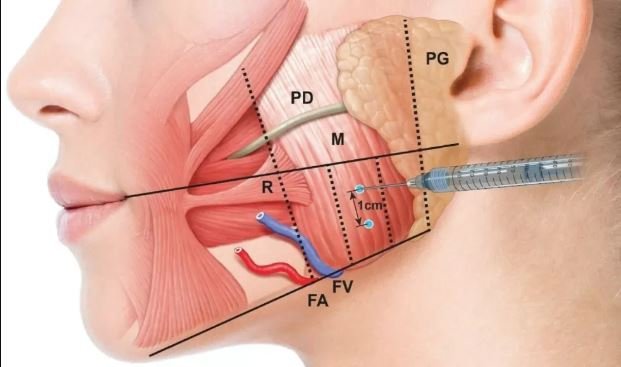Temporomandibular Joint (TMJ) disorders can be an ongoing source of discomfort and pain for many individuals. Characterized by issues in the jaw joint and surrounding muscles, TMJ disorders can lead to symptoms such as jaw pain, headaches, clenching, sleep apnea, muscle pain, lock jaw and difficulty chewing. While there are various treatments available, Botox has emerged as an effective option for managing TMJ pain. Here’s how Botox can help alleviate the symptoms and improve the quality of life for those suffering from TMJ disorders.
Understanding Botox as a Treatment for TMJ
Botox, or botulinum toxin, is a well-known treatment for cosmetic issues like wrinkles, but it has also shown promise in treating various medical conditions, including TMJ disorders. Botox works by temporarily paralyzing or relaxing muscles, which can be particularly beneficial in managing the muscle-related pain and dysfunction associated with TMJ disorders.
How Botox Helps:
Muscle Relaxation: Botox injections target the muscles around the TMJ, specifically those responsible for jaw movement. By relaxing these muscles, Botox reduces the intensity of muscle contractions that contribute to TMJ pain and discomfort.
Pain Relief: The relaxation of muscles can lead to a decrease in the overall tension in the jaw area. This reduction in muscle tension helps alleviate the pain associated with TMJ disorders, providing relief from headaches, jaw pain, and other related symptoms.
Reduced Clenching and Grinding: Many individuals with TMJ disorders experience teeth clenching or grinding, often exacerbated by stress or anxiety. Botox can help reduce these involuntary movements, which in turn can minimize damage to the teeth and decrease the strain on the jaw joint.
Improved Jaw Function: By easing muscle tension and pain, Botox can help improve the overall function of the jaw. This may lead to better jaw mobility and less discomfort when performing everyday activities like chewing or speaking.
The Botox Treatment Process
The procedure for Botox treatment for TMJ is relatively simple and involves a few key steps:
Consultation: The process begins with a consultation with a healthcare professional to evaluate the severity of your TMJ disorder and determine if Botox is a suitable treatment option for you.
Injection: During the procedure, Botox is injected into specific muscles around the TMJ. The number of injections and the amount of Botox used will depend on your individual needs and the severity of your symptoms.
Aftercare: After the injections, there may be some mild soreness or swelling at the injection sites, but this usually subsides within a few days. Most people are able to resume their normal activities immediately after the procedure.
Results: The effects of Botox typically start to become noticeable within a few days to a week after treatment. The results can last for several months, and follow-up treatments may be necessary to maintain relief.
What to Expect
While Botox can provide significant relief for many people with TMJ disorders, it’s important to have realistic expectations. The results can vary depending on the individual and the severity of the condition. Some people experience substantial improvement, while others may see more modest benefits. It’s also worth noting that Botox is often used in conjunction with other treatments, such as physical therapy or stress management techniques, for optimal results.
Final Thoughts
TMJ disorders can be challenging to manage, but Botox offers a promising option for those seeking relief from muscle-related pain and dysfunction. By relaxing the muscles around the TMJ, Botox can reduce pain, improve jaw function, and enhance overall quality of life. If you’re struggling with TMJ pain, consider discussing Botox with your healthcare provider to see if it could be a beneficial addition to your treatment plan. As always, consult with a qualified professional to ensure that Botox is the right choice for your specific needs and condition.
Book an appointment with us anytime at Pain Free Dentist Sydney!
Phone number: 9558 8988
E-mail: infor@painfreedentistsydney.com.au
